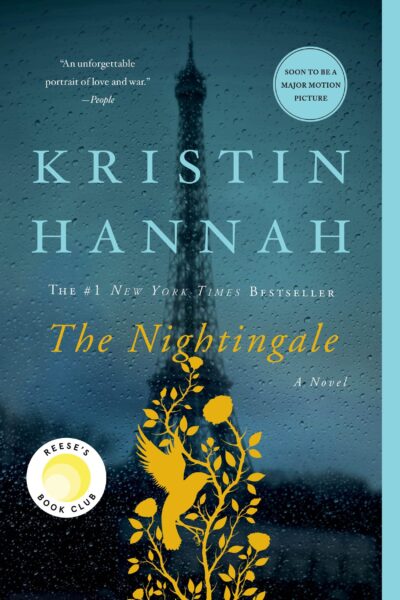Chapter 11: Survival and Secrets Under Occupation
byAs the Nazi occupation tightens its grip on France, Vianne and her daughters, Sophie and Isabelle, struggle to maintain a sense of normalcy in their daily lives. The absence of Antoine, now a prisoner of war, casts a long shadow over their home, forcing Vianne to take on new responsibilities to ensure their survival. She finds herself adopting practical measures such as gardening, preserving food, and raising rabbits—small yet crucial efforts to sustain her family through the growing hardships of war. Though life has become a careful balance of caution and endurance, Vianne clings to routines that provide moments of stability, such as attending church on Sundays with Sophie and sharing conversations with her best friend, Rachel, over coffee. These brief pockets of solace offer her a temporary escape from the overwhelming uncertainties of her reality.
Despite the looming fears of war, Vianne remains focused on safeguarding her home, but she becomes increasingly wary of Isabelle’s behavior. Her younger sister often disappears early in the morning without explanation, returning home with dirt-streaked clothes and a resolute expression that only fuels Vianne’s unease. Isabelle’s defiant attitude and unshakable determination have always been a point of contention between them, but now, Vianne senses something more—a quiet rebellion simmering beneath her sister’s actions. The unspoken tension between them grows, yet Isabelle refuses to answer Vianne’s questions, dismissing them with nonchalant shrugs or vague remarks. This secrecy only fuels Vianne’s concerns, making her wonder whether Isabelle has entangled herself in something far more dangerous than youthful recklessness.
The occupation seeps into every aspect of daily life, making even the simplest acts feel like quiet forms of resistance. Food shortages have worsened, forcing families to stretch their resources in ways they never imagined. Vianne resorts to using rabbit manure to fertilize their garden, despite the foul odor it produces, knowing that every small effort is vital to survival. The mere act of securing firewood for warmth is now a challenge, as supplies are confiscated or rationed under strict German control. Yet, in the midst of these struggles, there are fleeting moments of defiance—small victories that remind Vianne and others in her village that they are not entirely powerless.
When Captain Beck returns from his brief absence, his presence once again unsettles the delicate balance in Vianne’s home. He arrives bearing grim news that shatters what little hope she has left—Antoine has been captured and is now a prisoner of war. The weight of this revelation is crushing, leaving Vianne to wrestle with an even deeper sense of loneliness and despair. But despite the devastation, she refuses to let grief consume her. Instead, she channels her emotions into the one thing she still has control over: protecting Sophie and keeping their home intact. In a small but meaningful act, she ties a piece of yarn to the apple tree in their yard, creating a silent tribute to Antoine and a reminder that she must stay strong for their family.
The burden of war extends beyond Vianne’s personal losses, compelling her to help others in quiet yet impactful ways. When she learns that other women in the village also have husbands and sons who are prisoners of war, she discreetly shares the information with them, offering a small but significant connection to their loved ones. Risking potential punishment, she begins organizing ways for families to send carefully worded postcards to their imprisoned relatives, offering them a sliver of hope amidst the bleakness. Though she does not openly resist the occupation as Isabelle does, Vianne’s actions reveal a different kind of courage—the kind that manifests in small sacrifices and quiet acts of defiance.
As the chapter nears its conclusion, Vianne finds herself reflecting more deeply on Isabelle’s secretive behavior. Though she has long viewed her sister’s recklessness as naïve and dangerous, she begins to suspect that Isabelle’s actions are part of something greater than mere youthful defiance. A newfound awareness settles in—perhaps Isabelle, in her bold and unyielding way, has found a way to fight back against the occupation. This realization marks a shift in Vianne’s perspective, foreshadowing the inevitable collision of their paths as war continues to reshape their world.


